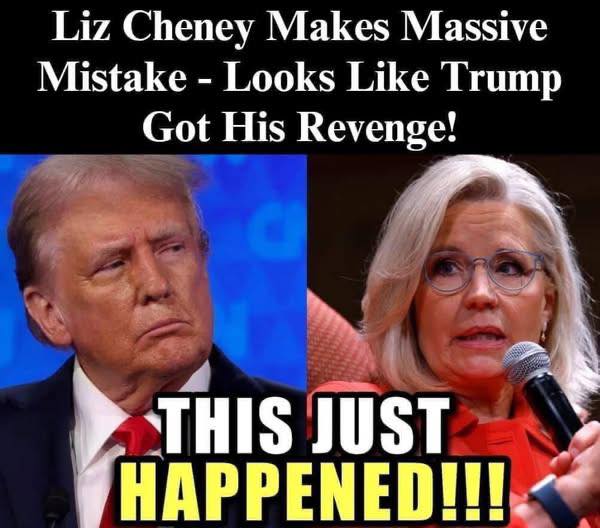Despite receiving a preemptive pardon from former President Joe Biden, former Wyoming Republican Representative Liz Cheney, who joined then-Vice President Kamala Harris on the campaign trail and turned against then-President Donald Trump during his first term, may be compelled to testify under oath before a GOP-led House committee.
Republicans established a new committee to investigate the operations and workings of the January 6 Committee, with Cheney serving as co-chair and a panel primarily composed of Democrats hand-picked by then-Speaker Nancy Pelosi of California, shortly after givingling in their slim majority last month at the direction of House Speaker Mike Johnson (R-La.).
In recent years, reports have revealed that the committee was more concerned with politics than the causes of the Jan. 6, 2021, riot at the U.S. Capitol. It turns out that the members of the committee allegedly concealed evidence to the contrary in order to focus on blaming Trump.
Cheney was outspoken in her criticism of Trump throughout the committee’s proceedings. “There will come a day when Donald Trump is gone, but your dishonor will remain,” she warned her party members in a June 2022 speech.
The Subcommittee on Oversight of the House Administration, led by Representative Barry Loudermilk (R-GA), issued a report in December 2024 recommending that Cheney be looked into for possible witness tampering. During the committee’s investigation, she was accused in the report of having unethical communications with Cassidy Hutchinson, a former White House aide.
Members of the January 6th Committee, including Cheney, were given preemptive pardons by Biden on January 20, shortly before he left office, to protect them from possible political reprisals by the next administration. According to Biden, these pardons are an acknowledgement of their service rather than an admission of misconduct.
Legal experts have pointed out a significant drawback of presidential pardons, though: they deprive the pardoned individual of the Fifth Amendment’s protection against self-incrimination.
People cannot be coerced into testifying against themselves in criminal proceedings, according to the Fifth Amendment. Brown v. Walker, a Supreme Court case from 1896, established a long-standing legal precedent that states that once a pardon is granted, the recipient can no longer claim the privilege because the pardon essentially eliminates the criminal liability associated with the offense.
The first to report on Cheney’s possible legal ramifications and how the presidential pardon might affect her ability to avoid testifying was the Cowboy State Daily. This could imply that Cheney might be legally compelled to testify regarding her involvement in the January 6 investigation if she is subpoenaed by the new subcommittee.
In an interview with Tucker Carlson, a former Fox News star, on his podcast late last month, journalist Matt Taibbi stated that Biden’s preemptive pardons for Cheney, Dr. Anthony Fauci, and others might backfire in some situations.
The problem with these pardons is that they were made incorrectly. Regarding rumors that Biden preemptively pardoned a number of people who were probably involved in criminal activity, Taibbi stated, “If you want to know what’s happening, they just made it a lot easier for us to find out.”
According to legal experts he has consulted, Taibbi stated that the pardons would not cover them if they were found to have lied under oath or permit them to plead the Fifth.
The individual can no longer invoke the Fifth Amendment after the pardon has been granted. They must speak up because they are unable to exercise their Fifth Amendment rights if they are brought before a grand jury or a congressional committee, the journalist explained.
The reason this is so fascinating, he added, is that he has been speaking with criminal defense lawyers, former Senate investigators, and some current Senate investigators, and they have all essentially expressed the same sentiment. “Granting a pardon to someone who is attempting to conceal something is so irrational that you would only do it in the event of extremely serious crimes, isn’t that right?”



